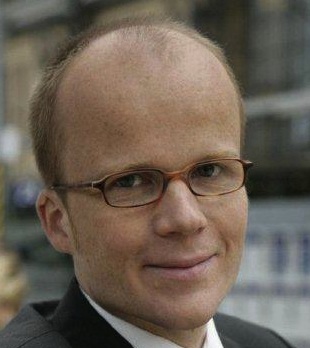Workshop on: QUANTUM INFORMATION AND FOUNDATIONS OF QUANTUM MECHANICS
Quantum Mechanics: Axiomatics and connections with Computing and Information Theory
Thermodynamic modelling of finite quantum systems
>PRESENTATION: Jochen Rau studied physics at the Universities of Frankfurt (Germany) and Cambridge (UK), before receiving his Ph.D. in 1993 from Duke University (North Carolina, USA). He subsequently held postdoctoral positions at the Max Planck Institute for Nuclear Physics in Heidelberg (Germany), the European Centre for Theoretical Studies in Nuclear Physics and Related Areas in Trento (Italy), as well as the Max Planck Institute for Physics of Complex Systems in Dresden (Germany). His early work focused primarily on non-equilibrium statistical mechanics, both regarding its formal framework and specific applications to thermal field theory, as well as to nuclear, solid state and chaotic systems. Intrigued by the central role of information in statistical physics, his interest gradually shifted to pure probability and information theory in both their classical and quantum varieties. After an intermezzo in the private sector as manager and consultant for various IT, telecom and logistics corporations, as well as a brief stint as interim professor of business administration, Jochen rejoined the physics community in 2008 as a Lecturer at Goethe University in Frankfurt (Germany), where he has introduced and taught novel courses on quantum information theory, quantum computation and probability theory.
